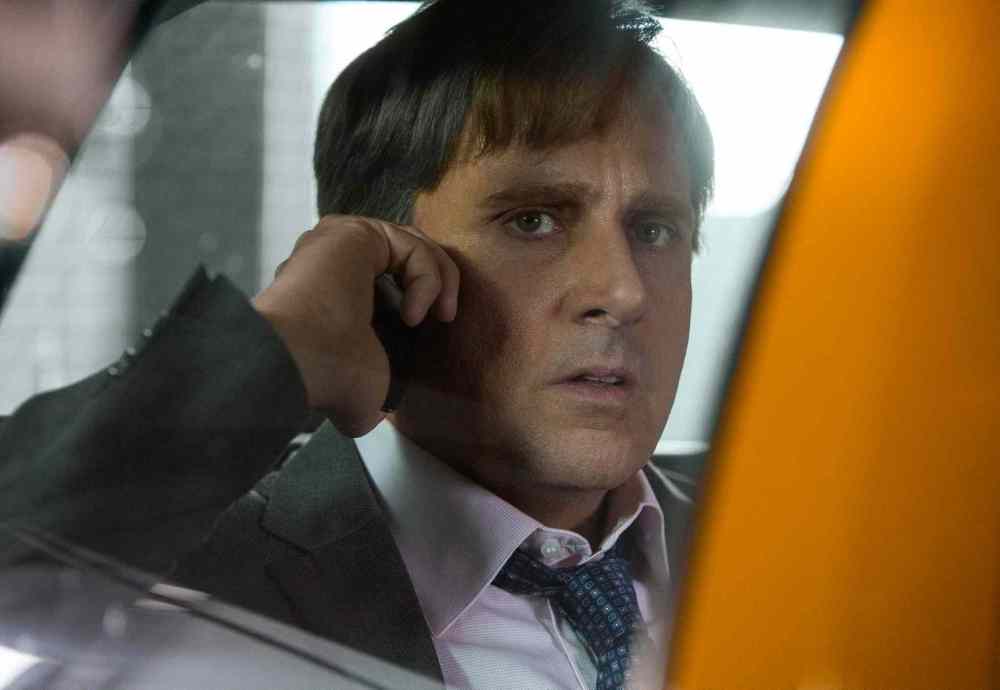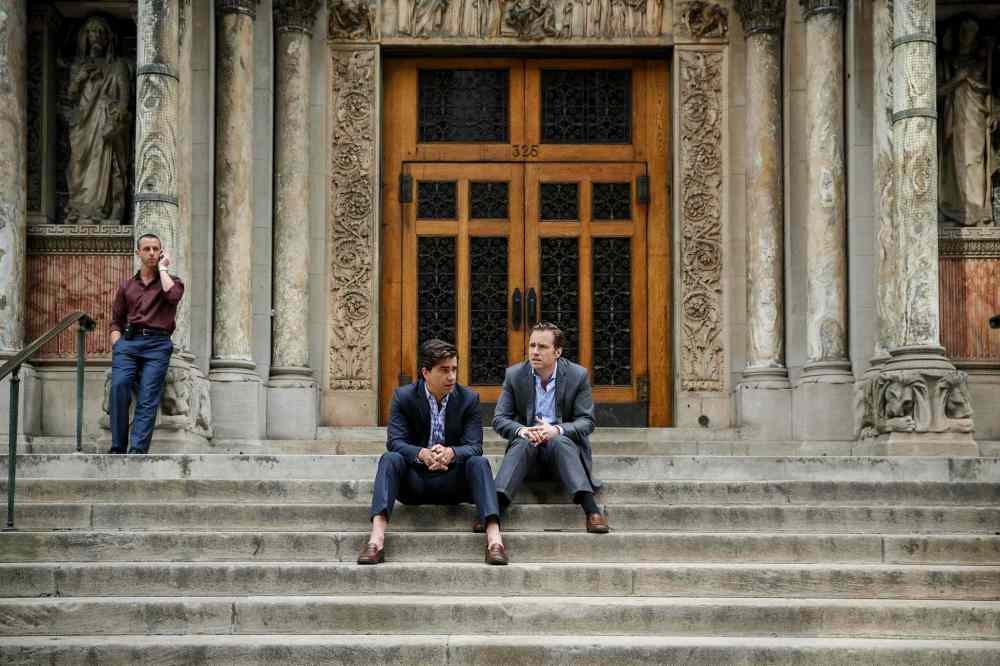Housing-market collapse becomes popcorn movie… with a message
Advertisement
Read this article for free:
or
Already have an account? Log in here »
To continue reading, please subscribe:
Monthly Digital Subscription
$0 for the first 4 weeks*
- Enjoy unlimited reading on winnipegfreepress.com
- Read the E-Edition, our digital replica newspaper
- Access News Break, our award-winning app
- Play interactive puzzles
*No charge for 4 weeks then price increases to the regular rate of $19.95 plus GST every four weeks. Offer available to new and qualified returning subscribers only. Cancel any time.
Monthly Digital Subscription
$4.99/week*
- Enjoy unlimited reading on winnipegfreepress.com
- Read the E-Edition, our digital replica newspaper
- Access News Break, our award-winning app
- Play interactive puzzles
*Billed as $19.95 plus GST every four weeks. Cancel any time.
To continue reading, please subscribe:
Add Free Press access to your Brandon Sun subscription for only an additional
$1 for the first 4 weeks*
*Your next subscription payment will increase by $1.00 and you will be charged $16.99 plus GST for four weeks. After four weeks, your payment will increase to $23.99 plus GST every four weeks.
Read unlimited articles for free today:
or
Already have an account? Log in here »
Hey there, time traveller!
This article was published 22/12/2015 (3672 days ago), so information in it may no longer be current.
Movie houses are generally filled with escapist fare during the holiday season… and for the rest of the year, for that matter.
The success of Star Wars: The Force Awakens bears this out. Given a choice, moviegoers would rather see a movie about a phantom menace than a real one.
Director Adam McKay is hip to this. As the frequent partner to Will Ferrell on films such as The Other Guys, Talladega Nights: The Ballad of Ricky Bobby and Anchorman, he’s a filmmaker whose comfort zone is in the realm of mildly satiric laughter.
But McKay elevates his game with The Big Short, a movie that leavens the tragedy of the economic meltdown of 2008 with some caustic comedy.
It’s very entertaining, even as its implications are horrifying. Think of this movie as a stealth bomber painted like a clown car.
McKay, who co-scripted this film with Charles Randolph, based on Michael Lewis’s 2010 book, makes it his mission to make the audience understand the causes of the housing-market collapse. At the time the economy went south, news organizations and experts tended to frame it as an aberrant event or a “correction” in the ebb and flow of economic trading.
The Big Short shows a few financial brainiacs not only saw it coming, they saw a way to profit on the stupidity, greed and corruption that allowed the crisis to happen.
At the forefront of these few savants is Michael Burry (Christian Bale), a San Jose-based private money manager who is the first to see the disparity between the artificially high value of packaged mortgage bonds versus the growing number of loan defaults within those packages.
“The whole housing market is propped up on these bad loans. They will fail,” he tells a skeptical investor. Burry finds a way to effectively bet against the housing market with a credit-default swap, a seemingly risky bet that sends many of his own investors into a panic. (The presumed health of the American housing market at the time was like a sacred cow, albeit one en route to the abattoir.)

Someone who doesn’t panic is Jared Vennett (Ryan Gosling), a slick, abrasive Wall Street financier who learns of Burry’s strategy and sees it as a wager worth taking. (McKay perversely presses Vennett, the most disagreeable of his protagonists, into double service as narrator.) Vennett artfully employs a Jenga game to illustrate how mortgages are packaged, and enlists the aid of crusading hedge-fund manager Mark Baum (Steve Carell) to investigate whether Burry is onto something.
Baum and his team of smart-ass researchers (Hamish Linklater, Rafe Spall and Jeremy Strong) go to Miami to investigate further and, to Baum’s growing horror, realize the housing market is heading to hell in a handcart. In one comic scene, Baum interviews a stripper as she gives him a lap dance, learning the woman holds the mortgages for “five houses and a condo.”
Another scene, in which Baum’s guys discover an alligator living in an abandoned swimming pool not only makes for a nice comic moment, it serves as a succinct in-a-nutshell symbol of what a tanked economy felt like to those lower and middle-class citizens who felt the brunt of its impact.
Yet another pair of money managers (Finn Wittrock and John Magaro) also stumble onto Burry’s strategy and convince embittered former banker Ben Rickert (Brad Pitt) to provide an entry into the realm of big money. If this third party seems like a narrative the movie doesn’t really need, the filmmakers would probably counter with this argument: Brad Pitt.

McKay approaches his subject with a freewheeling sensibility. If an explanation is required for a tricky economic concept, he’ll stop the movie and allow guest stars — including Margot Robbie, Anthony Bourdain and Selena Gomez — to explain them. The film also keeps some necessary dramatic grounding through Carell’s character, a guy for whom a past tragedy leaves him questioning his place in the wicked world of high finance, where the game is hopelessly rigged.
Even so, McKay’s singular achievement is in getting us on side with these outliers. As the housing-market crash is forestalled, we actually find ourselves eagerly anticipating the crash we know will come.
I haven’t felt such a perverse sense of identification since breathlessly waiting for Norman Bates to successfully hide Marion Crane’s body in the swamp.
randall.king@freepress.mb.ca

Our newsroom depends on a growing audience of readers to power our journalism. If you are not a paid reader, please consider becoming a subscriber.
Our newsroom depends on its audience of readers to power our journalism. Thank you for your support.


